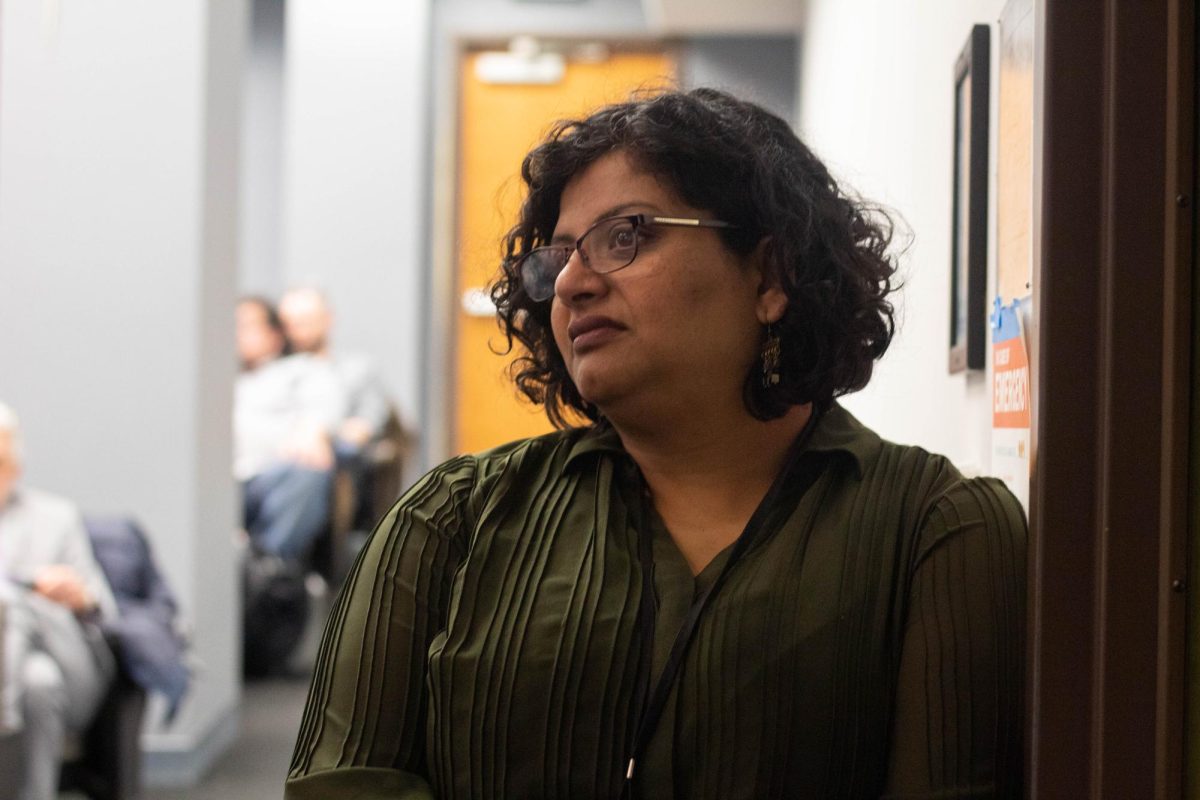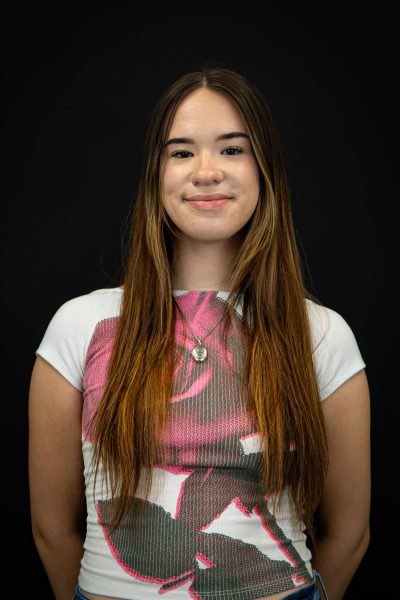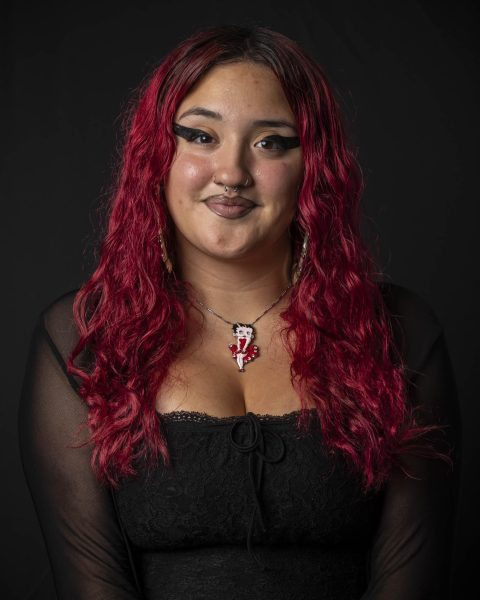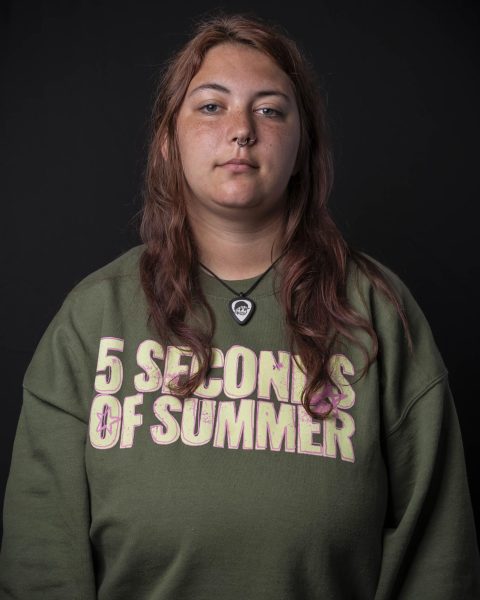As Faculty Senate president for the past three years, Madhurima Chakraborty led the faculty through the pandemic, a historic part-time faculty strike and now a financial crisis that will reshape the college.
Chakraborty, associate professor in the English and Creative Writing Department, will take a year sabbatical as her term ends this week, paving the way for a new president.
“It’s a lot of work,” said Chakraborty, who has taught at Columbia for 14 years. “It’s work that I enjoy, but because I put in as much energy as I possibly can into everything it’s a little intense.”
Made up of full-time faculty, the senate is a key part of how the college operates. The senate acts as a bridge between the faculty and the college administration, making sure that faculty voices are heard when it comes to important issues. They play a central role in shaping academic policies and making recommendations to improve the college’s academic environment.
Terms for president on the senate last three years, and then self-nominations are sent out for senators, the Executive Committee and for president.
Chakraborty announced at the final Faculty Senate meeting of the semester that Rojhat Avsar, associate professor in the History, Humanities and Social Sciences Department, would be taking her place as president next year.
“I have learned a lot from her and appreciated the opportunity to have worked alongside her on the Executive Committee,” Avsar said.
Chakraborty’s leadership as Faculty Senate president has been essential to faculty voices amid a historic part-time faculty strike and the announcement of a plethora of budget cuts to close the college’s deficit.
At a meeting with the Board of Trustees on May 9, which was meant to vote on the colleges status of adverse circumstances, Chakraborty argued that the changes were being made hastily, without sufficient data.
In front of the board, Chakraborty noted the potential hit to enrollment and retention following the news about the looming financial crisis. She also echoed the Faculty Senate’s response to President and CEO Kwang-Wu Kim’s draft advisor report, which Chakraborty led, saying that firing tenured faculty before processes like the expedited program review has had a chance to conclude is “not just firing tenured faculty, but removing tenure altogether.”
Once an email was mistakenly sent 30 minutes into the meeting announcing the board had already voted, Chakraborty said that it made her feel as though “a lot of decisions have been made already.”
Although it deferred a decision on May 9, the board ultimately voted on May 20 to declare “adverse circumstance,” which paves the way for sweeping decisions to address the $38 million financial deficit.
The college has pointed to the part-time faculty strike as one of the reasons why the deficit nearly doubled. Cost-cutting measures, including layoffs, should bring the deficit back down to about $15 million by Fall 2024, closer to what it was before the strike.
Chakraborty said that in her leadership during the strike, she took a stance of “intense non-alignment” rather than neutrality in her support for faculty.
“There was a lot of stress,” Chakraborty said. “I was determined not to take a vocal stance on one side or the other, not because I didn’t want to be involved or I didn’t want to get implicated, but because seriously, full-time faculty were stuck in the middle of a conversation that we could not control.”
When Chakraborty began working on the Executive Committee, she said that “a number” of people told her it was not the Faculty Senate’s job to advocate for faculty, but simply to help shape policies around the college.
“I hope that this is not the image of the Faculty Senate that people continue to have,” Chakraborty said. “We should get questions and demands and people coming to us to say that this is not working right, and we should be trying to make things better.”
In terms of the next academic year, Chakraborty said there are going to be a lot of changes for the Faculty Senate in reference to the ongoing conversation of the restructuring of the college.
In response to the first draft of Kim’s advisory report, Chakraborty said that she saw “dozens” of full-time faculty who were not on the senate helping out to do research for the response.
“I think it shows that people are willing to put in time and energy even when it kind of seems hopeless,” she said. “A little bit to try and make something work.”
Moving forward under new faculty leadership, Chakraborty hopes that after the year Columbia has had, “sincere, meaningful disagreements” will continue.
“In an incredibly complex organization like a college, dissent and disagreement is the only way that we come up with good ideas,” Chakraborty said. “It’s easy to say I think this is what the structure should look like, but I need somebody to tell me why that won’t work.”
Brendan Riley, associate professor of English and Creative Writing, who has worked alongside Chakraborty on the Faculty Senate, described her as “a stalwart voice of reason and a passionate advocate for the faculty perspective.”
“She always pushed hard to help us make the student experience at Columbia the best it can be,” Riley said. “On a personal note, I’ve learned a lot about leadership from working with her, and I’ll miss not having her in the senate.”
Chakraborty said that thinking back on previous years, she remembers her leadership beginning in the fall of 2020, after the COVID-19 pandemic took over campus, as a time when faculty really came together.
“This is such a cliche, but I think that over and over again I’ve just seen so much evidence that when different people come together, we do make better decisions.” Chakraborty said.
Chakraborty said that her time on the Faculty Senate has been useful in taking her mind off of the loss of her mother in August.
“I was offered time off, and because I don’t have a crystal ball I said, ‘you know what? I think the senate might be a distraction from the grief,’” Chakraborty said. “Every day there’s a rhythm, you know, to do this work, and I thought that that might be a true meaningful distraction.”
Following her father’s passing four years ago as she was starting on the senate’s Executive Committee, Chakraborty said that her time on the senate has been “bookended by this tremendous grief.”
“It’s been not great,” she said. “I want to be so much stronger, but that’s the truth.”
Avsar said that Chakraborty’s leadership has been “guided by the vision that the senators were a body of faculty members with diverse opinions that all deserve equal attention.”
Chakraborty said that she looks forward to her time on sabbatical which she will spend taking a trip to Mexico as a writing retreat and working on her next project.
“There’s going to be a lot of work and I’m really grateful in advance to everybody,” Chakraborty said.
Copy edited by Trinity Balboa











